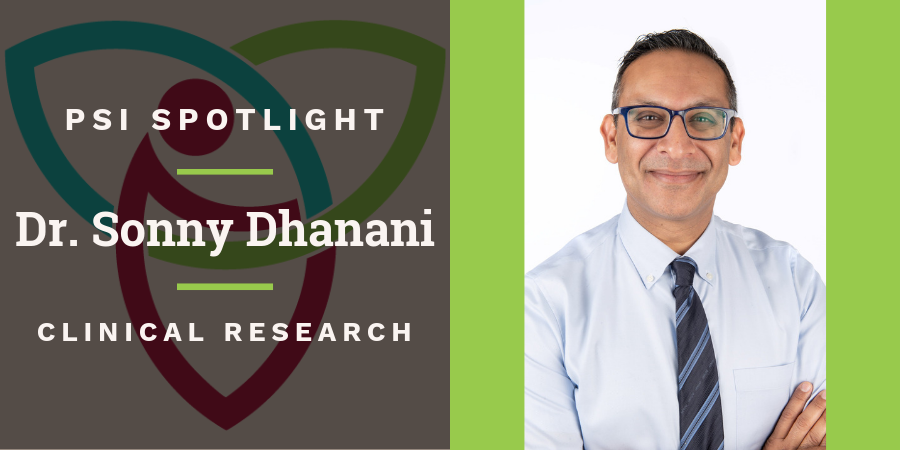Dr. Kimia Honarmand is currently a critical care physician at London Health Science Centre. She led research during her critical care fellowship training with supervisor Dr. Ian Ball to survey health care providers and the Canadian public about their support for two controversial organ donation protocols that may be used after circulatory determination of death. The surveys not only demonstrated support for organ donation, but also kick-started an entire program of research.
Two protocols may be used for cardiac donation after circulatory determination of death (cardiac DCDD):
- Direct procurement and perfusion (DPP): the heart is removed from the donor after circulatory determination of death and placed in a machine where its activity is restored until transplantation
- Normothermic regional perfusion (NRP): circulation and cardiac activity are restarted in the body after circulatory determination of death, although blood supply to the brain is interrupted, and the heart is then removed from the donor
While these techniques have the potential to increase the number of organ donors, they have yet to be conducted in Canada, partly due to concerns about their acceptability to the Canadian public and health care providers.
PSI: What did the Resident Research Grant allow you to study?
Dr. Kimia Honarmand:
Health care providers and experts in transplantation have expressed concerns about these two approaches being accepted in Canada. Would the public and clinicians be comfortable with these protocols? Would there be any ethical concerns? Would there be any backlash? The only way to find out is to ask people.
We developed two national surveys, one for health care providers who manage organ donors or transplant recipients and one for the general public, to ask about their support for these protocols. The surveys went through rigourous pre-testing and pilot testing to ensure they were accurate and comprehensive.
PSI: What did the surveys find?
Dr. Kimia Honarmand:
The surveys demonstrated that the majority of health care providers and Canadians are supportive of the protocols. Nearly 90% of health care providers and 84% of the general public supported DPP, and 71% of health care providers and 66% of the general public supported implementing NRP.
We found it interesting that even though we thought the NRP protocol would receive next to no support, the majority of respondents in the general public were supportive. They had a lot of positive sentiment toward organ donation in general, even the controversial protocols.
PSI: What are the next steps for the research?
Dr. Kimia Honarmand:
The funding was relatively small, but it spawned an entire program of research with the goal of ensuring the implementation of cardiac DCDD is done in a manner consistent with Canadians’ values.
Since the surveys were completed, we have published three articles about the surveys, presented at a national forum led by Canadian Blood Services and Trillium Gift of Life Network and presented at the Canadian Critical Care Forum.
Our survey findings have generated a lot of interest in the critical care community. At the meetings, a lot of the conversation kept referring to the survey findings. There was widespread recognition that these findings are important in making sure that if we’re going to implement these protocols in Canada, we do it in a way that respects Canadians’ values.
And we have successfully applied for funding from Canadian Blood Services to delve further into these topics. We are interviewing health care providers and the public to understand their perspectives and find the best way forward to implementing cardiac DCDD in Canada.
PSI: How did this research grant contribute to your career?
Dr. Kimia Honarmand:
This program of research that has evolved from the PSI grant has become the primary focus of my research career. Since finishing my medical training, I’ve continued to be engaged in this topic, leading this program of research with mentorship from Dr. Ian Ball and identifying ways that we can mitigate any concerns about these protocols and find the path forward to implementing them in Canada.
I owe a lot of the successes I’ve seen in last couple of years to that relatively small grant. This research has become a prominent feature of my career. It has helped drive my career path in a much clearer direction and solidified my interest in doing research in organ donation and transplantation.
PSI: Why is it important for PSI Foundation to fund resident research?
Dr. Kimia Honarmand:
This kind of opportunity, even if it’s a small grant, can really help shape the career of an early career, keen researcher. When you’re training, you’re often interested in so many different topics and you have to lean into one; having an area of research where you’re financially supported and where you have the opportunity to lead research that actually has impact on the community can help an early career researcher feel confident that they are on the right career path.
A grant like this helps a early career researcher solidify where to go with their career. It’s an important validation that what you’re doing is important to society.



